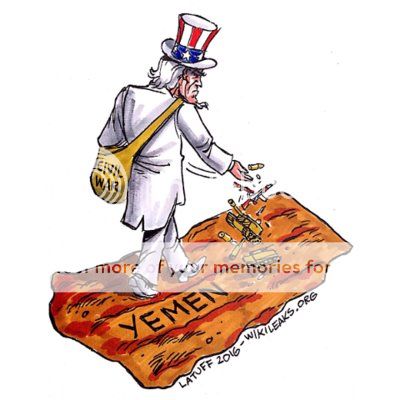Saudi Arabia is Destabilizing the World
Just a few months ago, the governor of Indonesia’s largest city, Jakarta, seemed headed for easy re-election despite the fact that he is a Christian in a mostly Muslim country. Suddenly everything went violently wrong. Using the pretext of an offhand remark the governor made about the Koran, masses of enraged Muslims took to the streets to denounce him. In short order he lost the election, was arrested, charged with blasphemy, and sentenced to two years in prison.
This episode is especially alarming because Indonesia, the world’s largest Muslim country, has long been one of its most tolerant. Indonesian Islam, like most belief systems on that vast archipelago, is syncretic, gentle, and open-minded. The stunning fall of Jakarta’s governor reflects the opposite: intolerance, sectarian hatred, and contempt for democracy. Fundamentalism is surging in Indonesia. This did not happen naturally.
Saudi Arabia has been working for decades to pull Indonesia away from moderate Islam and toward the austere Wahhabi form that is state religion in Saudi Arabia. The Saudis’ campaign has been patient, multi-faceted, and lavishly financed. It mirrors others they have waged in Muslim countries across Asia and Africa.
Successive American presidents have assured us that Saudi Arabia is our friend and wishes us well. Yet we know that Osama bin Laden and most of his 9/11 hijackers were Saudis, and that, as Secretary of State Hillary Clinton wrote in a diplomatic cable eight years ago, “Donors in Saudi Arabia constitute the most significant source of funding to Sunni terrorist groups worldwide.”
Recent events in Indonesia shine a light on a Saudi project that is even more pernicious than financing terrorists. Saudi Arabia has used its wealth, much of which comes from the United States, to turn entire nations into hotbeds of radical Islam. By refusing to protest or even officially acknowledge this far-reaching project, we finance our own assassins — and global terror.
The center of Saudi Arabia’s campaign to convert Indonesians to Wahhabi Islam is
a tuition-free university in Jakarta known by the acronym LIPIA. All instruction is in Arabic, given mainly by preachers from Saudi Arabia and nearby countries. Genders are kept apart; strict dress codes are enforced; and music, television, and “loud laughter” are forbidden. Students learn an ultra-conservative form of Islam that favors hand amputation for thieves, stoning for adulterers, and death for gays and blasphemers.
Many of the students come from the more than 100 boarding schools Saudi Arabia supports in Indonesia, or have attended one of the 150 mosques that Saudis have built there. The most promising are given scholarships to study in Saudi Arabia, from which they return fully prepared to wreak social, political, and religious havoc in their homeland. Some promote terror groups like Hamas Indonesia and the Islamic Defenders Front, which did not exist before the Saudis arrived.
Eager to press his advantage, King Salman of Saudi Arabia made a nine-day trip to Indonesia in March, accompanied by an entourage of 1,500. The Saudis agreed to allow more than 200,000 Indonesians to make the hajj pilgrimage to Mecca each year — more than come from any other country — and sought permission to open new branches of their LIPIA university. Some Indonesians are pushing back against the Saudi assault on their traditional values, but it is difficult to deny permission for new religious schools when the state is not able to provide decent secular alternatives. In Indonesia, as in other countries where the Saudis are actively promoting Wahhabism — including Pakistan, Afghanistan, and Bosnia — the weakness and corruption of central governments create pools of rootless unemployed who are easily seduced by the promises of free food and a place in God’s army.
The surging fundamentalism that is transforming Indonesia teaches several lessons. First is one that we should already have learned, about the nature of the Saudi government. It is an absolute monarchy supported by one of the world’s most reactionary religious sects. It gives clerics large sums to promote their anti-Western, anti-Christian, anti-Semitic brand of religious militancy abroad. In exchange, the clerics refrain from criticizing the Saudi monarchy or its thousands of high-living princes. Saudis with close ties to the ruling family give crucial support to groups like Al Qaeda, the Taliban, and ISIS. This fact should be at the front of our minds whenever we consider our policy toward the Middle East — including when we decide whether to side with the Saudis in their
new dispute with neighboring Qatar.
Saudi Arabia’s success in reshaping Indonesia shows the importance of the global battle over ideas. Many in Washington consider spending for cultural and other “soft power” projects to be wasteful. The Saudis feel differently. They pour money and resources into promoting their world view. We should do the same.
The third lesson is........
https://www.commondreams.org/views/2017/06/11/saudi-arabia-destabilizing-world




